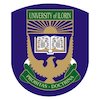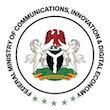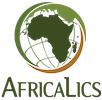
University of Ilorin, Nigeria
The University of Ilorin (UNILORIN) was established by the Federal Government of Nigeria in 1975 with a vision to be an international centre of excellence in learning, research, probity, and service to humanity. The institution has a mission to provide a world-class environment for learning, research, and community service. With an undergraduate student population of 50,833 across 16 faculties running 90 academic programmes and a staff strength of about 4,474, the University of Ilorin has remained the most sought-after University in Nigeria over the past five years, with the highest number of applicants. The faculties run both undergraduate and postgraduate programmes and currently have over 7,000 students running postgraduate programmes. The University has intentionally promoted research on innovation in all fields. Towards this end, the institution established CREDIT (Center for Research, Development, and In-house Training) to coordinate innovative research across faculties and instituted the office of a Deputy Vice- Chancellor Research, Technology, and Innovation. UNILORIN has established relationships with universities worldwide, carrying out academic exchanges, scientific research cooperation, and providing opportunities for international students. The university is also poised for research and encourages academic staff to seek fellowship opportunities worldwide while providing the necessary support. The school is strategically located in the middle belt Zone of the country, about 500 km from Abuja, the Federal Capital Territory. UNILORIN currently hosts the secretariat of NigeriaLics.
For more information about UNILORIN, visit https://www.unilorin.edu.ng/about-us/

The Federal Ministry of Communications, Innovation and Digital Economy
The Federal Ministry of Communications, Innovation, and Digital Economy journey began with a deep-seated belief in the power of connectivity and the boundless potential of digital innovation with the understanding that in the digital age, access to information and technology is not just a luxury; it’s a fundamental right. And so, with unwavering determination, the ministry set out to bridge the digital divide that had long separated Nigeria’s urban centers from its rural heartlands.
At our core, we exist to catalyze a technological revolution. Our mission is clear: we leverage the power of Information and Communication Technology (ICT) to fuel job creation, ignite economic growth, and illuminate the path to transparent governance.
Our roots lie in a vision to nurture a vibrant knowledge-based economy that resonates with the dynamic spirit of Nigeria. From the very beginning, we embraced the power of Information and Communication Technology (ICT) as a cornerstone of our nation’s growth and development.
For more information about the Federal Ministry of Communications, Innovation and Digital Economy, visit https://fmcide.gov.ng/

NigeriaLics

AfricaLics
- A need to understand innovation and learning in the context of Africa – both from theoretical and practical perspectives.
- Given the fact that Africa lacks adequate capacity for the above purpose, a need for capacity building arose.
